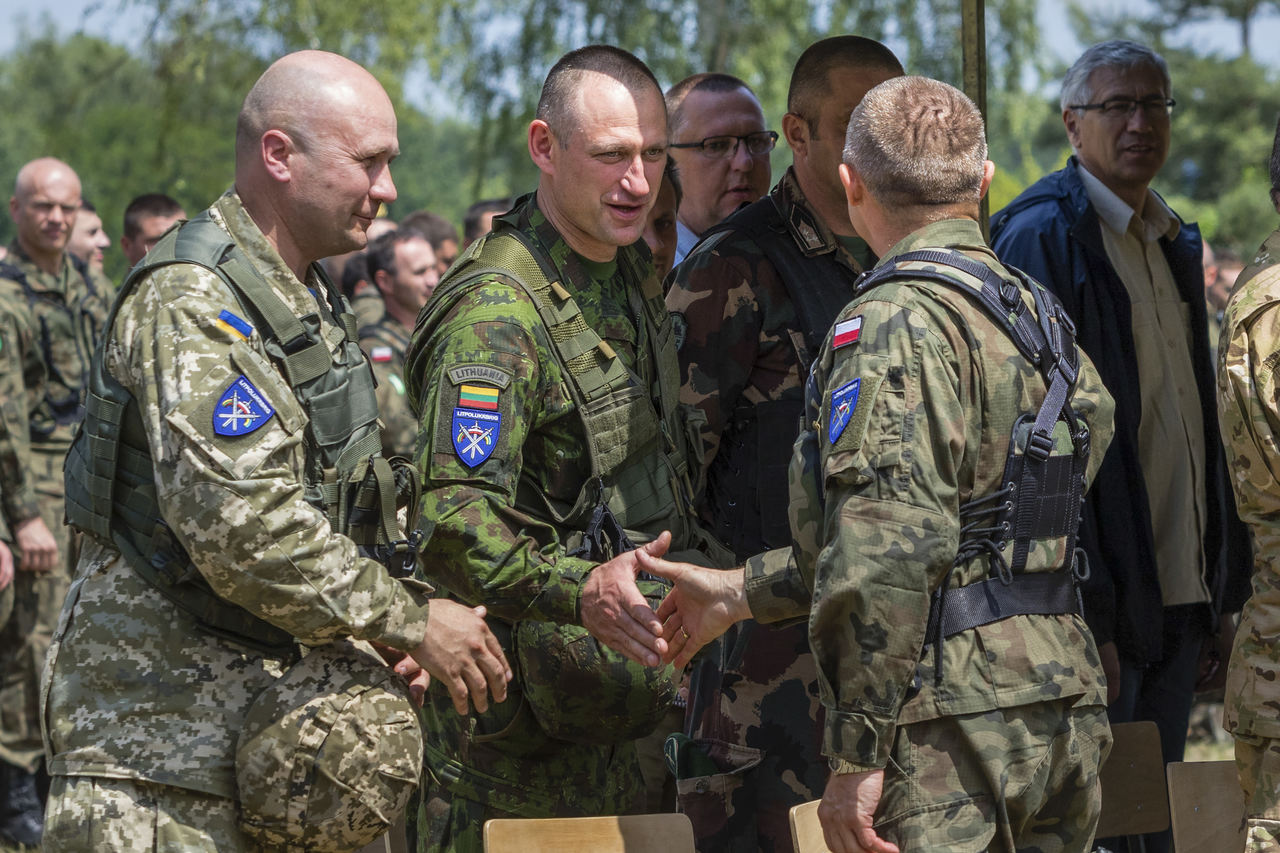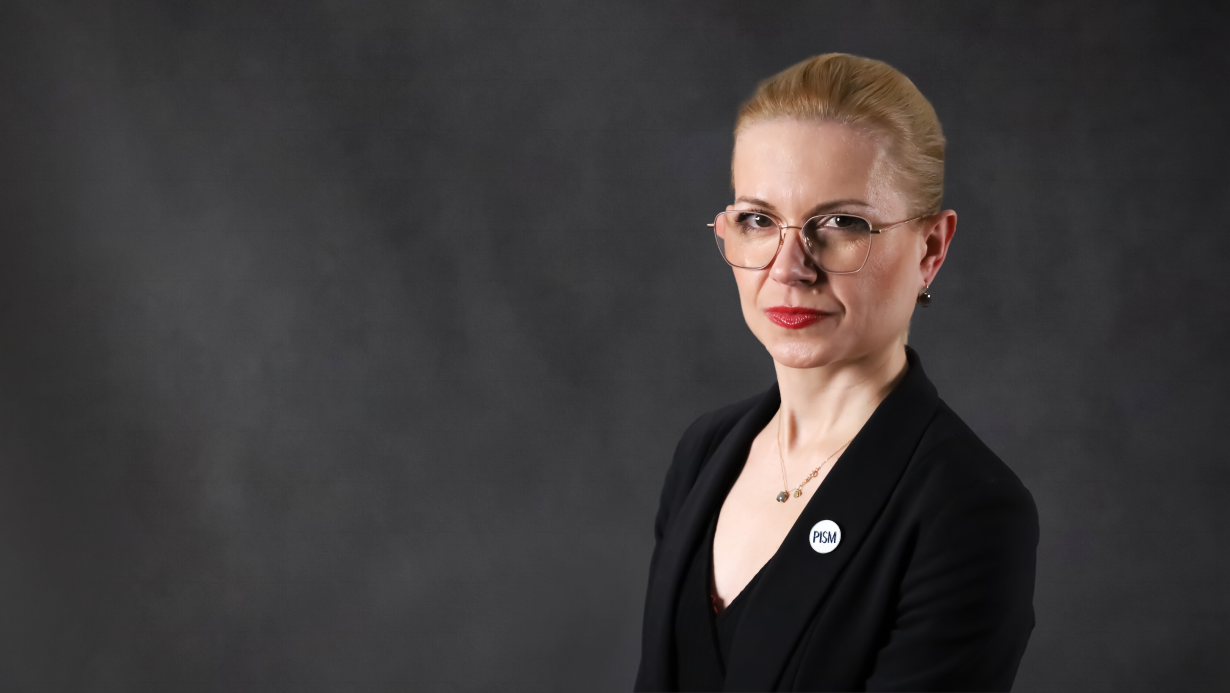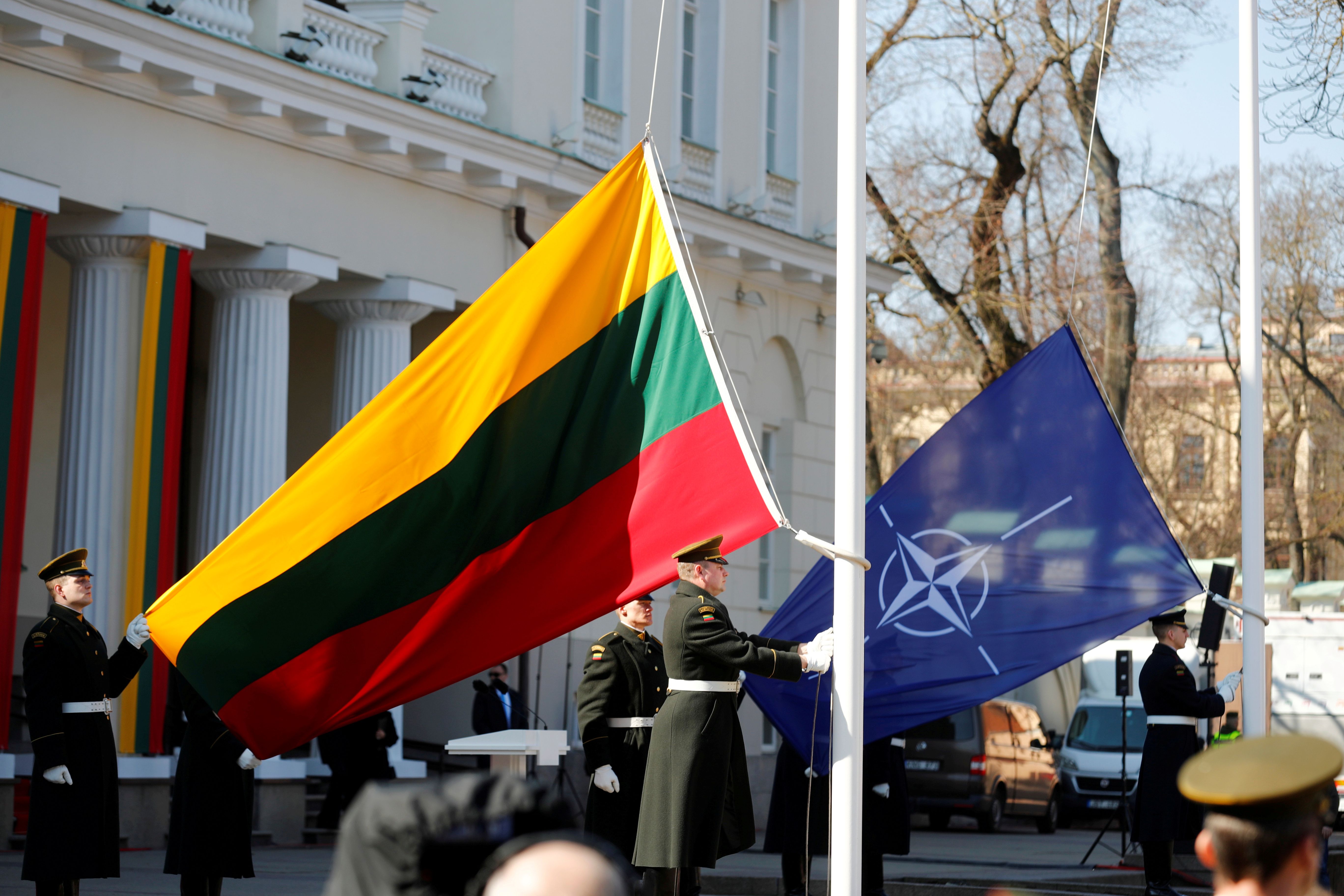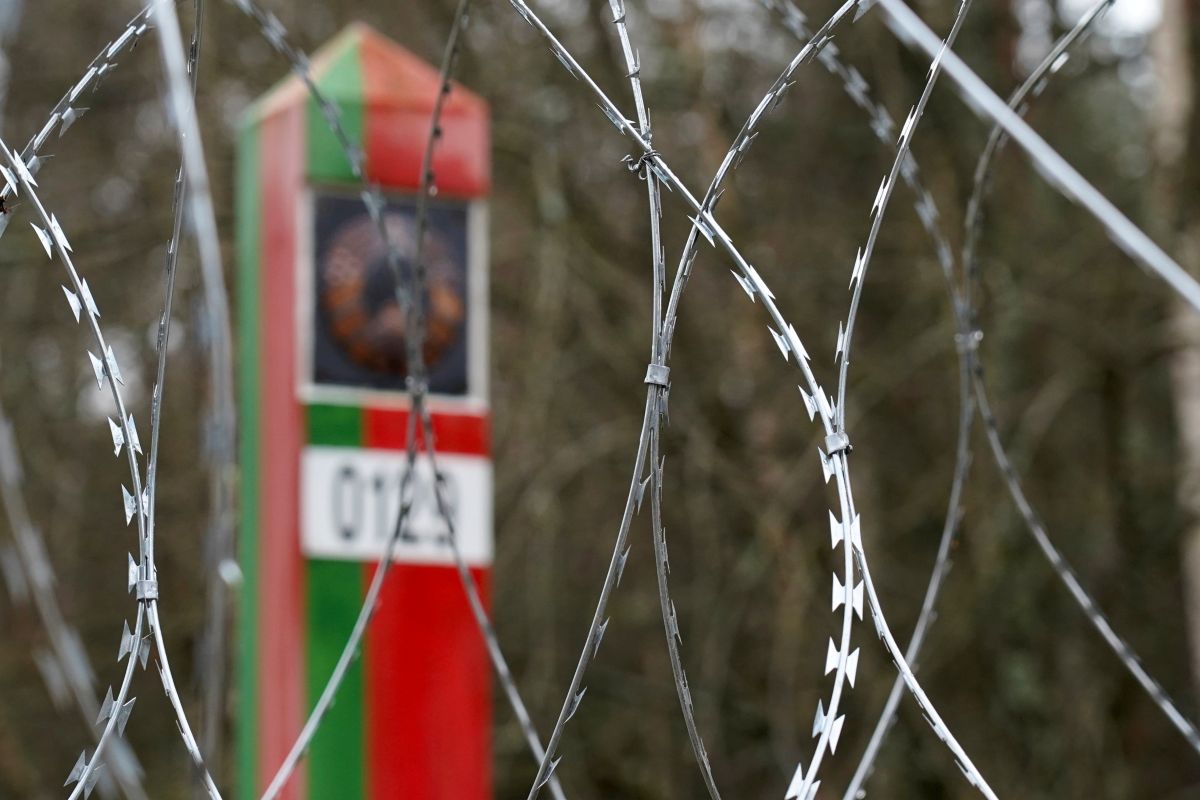With War in Ukraine, Lithuania Tightens Security Policy
Russia’s full-scale invasion of Ukraine prompted the Lithuanian authorities to pay even more attention to security issues. Lithuania will continue to increase defence spending to accelerate the modernisation of its armed forces and increase the potential of military-civil and allied cooperation within NATO, among other things. Lithuania intends to remain in the vanguard of countries that support Ukraine. Increasing defence capabilities will contribute to Lithuania strengthening the security of the Alliance’s Eastern Flank, a goal also sought by Poland. The NATO summit in Vilnius will be an opportunity for diplomats of both countries to cooperate in order to convince the allies to update their regional defence plans.
 Slawomir Olzacki / Forum
Slawomir Olzacki / Forum
Security and the Perception of Relations with Russia
Lithuanian-Russian relations are burdened by historical events and determined by Russia’s imperialist ambitions towards the former Soviet republics. Since regaining independence in 1991, Lithuania has focused its efforts on Euro-Atlantic integration and independence from the former occupier, primarily in the field of energy. It is also among the countries most actively shaping the EU’s eastern policy, which includes support for democratisation in the post-Soviet area.
The Russian invasion of Ukraine in February 2022 confirmed the Lithuanian authorities’ policy and prompted them to tighten it. Already in April, Lithuania deemed the Russian ambassador persona non grata and after the disclosure of the massacre of civilians in Bucha, it lowered the rank of diplomatic relations. Then, in response to Vladimir Putin’s announced annexation of the occupied regions of Ukraine, it also expelled the Russian chargé d’affaires. Lithuania calls for further international isolation of Russia, including suspending it from the OSCE and blocking athletes from participating in the 2024 Paris Olympics.
Lithuania has consistently supported the EU’s policy of sanctions and limiting Russia’s profits from exports of energy resources. It gave up supplies of Russian gas in favour of more expensive LNG. It has been successively trying to redirect trade away from Russia since the beginning of the war, Lithuanian exports to that market have decreased by more than a third while they have doubled to the Asian CIS countries. In June 2022, Lithuania also suspended transit from Russia through Belarus to Kaliningrad Oblast, but eventually the European Commission ordered that selected goods be allowed through. In February this year, Lithuania, Estonia, Latvia, and Poland sent a letter to EU institutions requesting frozen Russian funds be used to rebuild Ukraine.
Adaptation of the Security Strategy
The conservative-liberal cabinet of Ingrida Šimonytė, which has been in power since the end of 2020, has made Lithuania’s security a priority. In response to Russia’s increasingly aggressive actions, the Lithuanian government updated its security strategy as recently as December 2021. It also planned successive increases in defence spending. In 2023, it will amount to 2.52% of GDP, with the possibility of increasing it to 3%. In 2021, it was slightly over 2%.
Lithuania is strengthening its defence capabilities, but as a small country with limited funds and staff, it prioritises allied cooperation. The updated security strategy highlights the importance of the bilateral alliance with the United States, especially when the EU does not take a unanimous position on Russia. That is why Lithuania wants to change the rotational presence of American troops at the base in Podbrodzie to permanent. It also has increased cooperation with the U.S. in arming Lithuania’s military. In December 2021, the two countries signed an agreement on mutual arms procurement. At the beginning of this year, The American Defense Resources Agency and the Innovation Agency offered the Lithuanian side participation in Defense Innovation Unit (DIU) projects of the Department of Defense.
The security strategy emphasises the importance of regional cooperation on NATO’s Eastern Flank and in the Baltic basin. That is why Lithuania is seeking to increase Alliance forces on its territory as part of a battalion battle group commanded by Germany. After the withdrawal of the UK from the EU, the importance of Germany as a partner in shaping European security policy and as a key partner in defence industry cooperation has increased, despite divergences in the perception of the Russian threat. The aim of the government in Vilnius is also to strengthen Air Policing, the NATO mission protecting the airspace of the Baltic States, with additional fighters and ground systems. Lithuania also announced the intensification of defence cooperation with the Nordic states, bolstered by the application of Finland and Sweden to join NATO, which the Lithuanian authorities quickly backed. The importance of cooperation with the UK regarding the Baltic Sea is also growing, as evidenced by the JEF expeditionary group formed by 10 northern European countries. In November 2022, as part of the Joint Protector 2022 military exercises, Lithuanian units operated within the JEF in Denmark.
Lithuania is intensifying cooperation with Poland, also within the B3+1 format, which also includes Latvia and Estonia. It was formalised by the foreign ministers of the four countries in February 2023 in Riga where they signed a declaration about their common perception of threats and on deepening cooperation in the field of security, economic development, and assistance to Ukraine. This forum proved valuable during the EU-Belarus border crisis, which peaked in the summer and autumn of 2021. The protection of the Union’s external borders required close cooperation between the services of Poland and the Baltic States. The war in Ukraine additionally strengthened this dimension of their relations.
Among the priorities of the Lithuanian authorities is further assistance to Ukraine, which was confirmed by Minister of Defence Arvydas Anušauskas during his visit to Kyiv in March last year. So far, Lithuania has provided support worth at least €283 billion, including Stinger air-defence systems, anti-tank weapons, body armour and helmets, artillery ammunition, 120 mm mortars, thermal-imaging cameras, and armoured personnel carriers. Lithuania and Poland are training Ukrainian soldiers as part of the mixed brigade LITPOLUKRBRIG. The potential of trilateral cooperation—going beyond strictly military issues—in the Lublin Triangle is also growing. This was confirmed by the joint declaration of the countries’ prime ministers of November 2022, ensuring continued support of Poland and Lithuania for Ukraine.
Conclusions and Perspectives
The full-scale invasion of Ukraine changed the security situation in the region and required the Lithuanian authorities to adapt their strategic priorities. Accordingly, Lithuania will continue to tighten military cooperation with the U.S., Poland, the other Baltic States, the Nordic countries, and within NATO. Lithuania’s increasing defence expenditures, allocated to up-arming the military and expanding its infrastructure to improve its interoperability with allied forces, adds to its credibility among Alliance members. Lithuania wants to take the opportunity at the NATO summit in Vilnius, planned for July, to strengthen the defence of the Eastern Flank, including by updating the Alliance’s regional plans. The Lithuanian authorities want a formally permanent, not just rotational, presence of U.S. troops on its territory and an increase in the contingents of other allies.
Lithuania joins other countries trying to isolate Russia internationally and support Ukraine. It will continue to promote Ukraine’s Euro-Atlantic integration, a goal also supported by Poland and others. A convergent approach to EU eastern policy is conducive to cooperation between Lithuania, Latvia, Estonia, and Poland, especially in the B3+1 format, which will remain important in protecting NATO and EU borders, crisis management, and counteracting hybrid threats. The Lublin Triangle and LITPOLUKRBRIG are also increasingly useful tools.
There is a consensus on the Lithuanian political scene as to the direction of state security policy. Nevertheless, the aim of rapid implementation may be hindered by Lithuania’s limited budgetary capacity and dependence on arms purchases from larger allies. Meanwhile, the country’s relatively small defence industry is focused on procurement for defending Ukraine, meaning Lithuania’s own needs are not the top priority for now.




